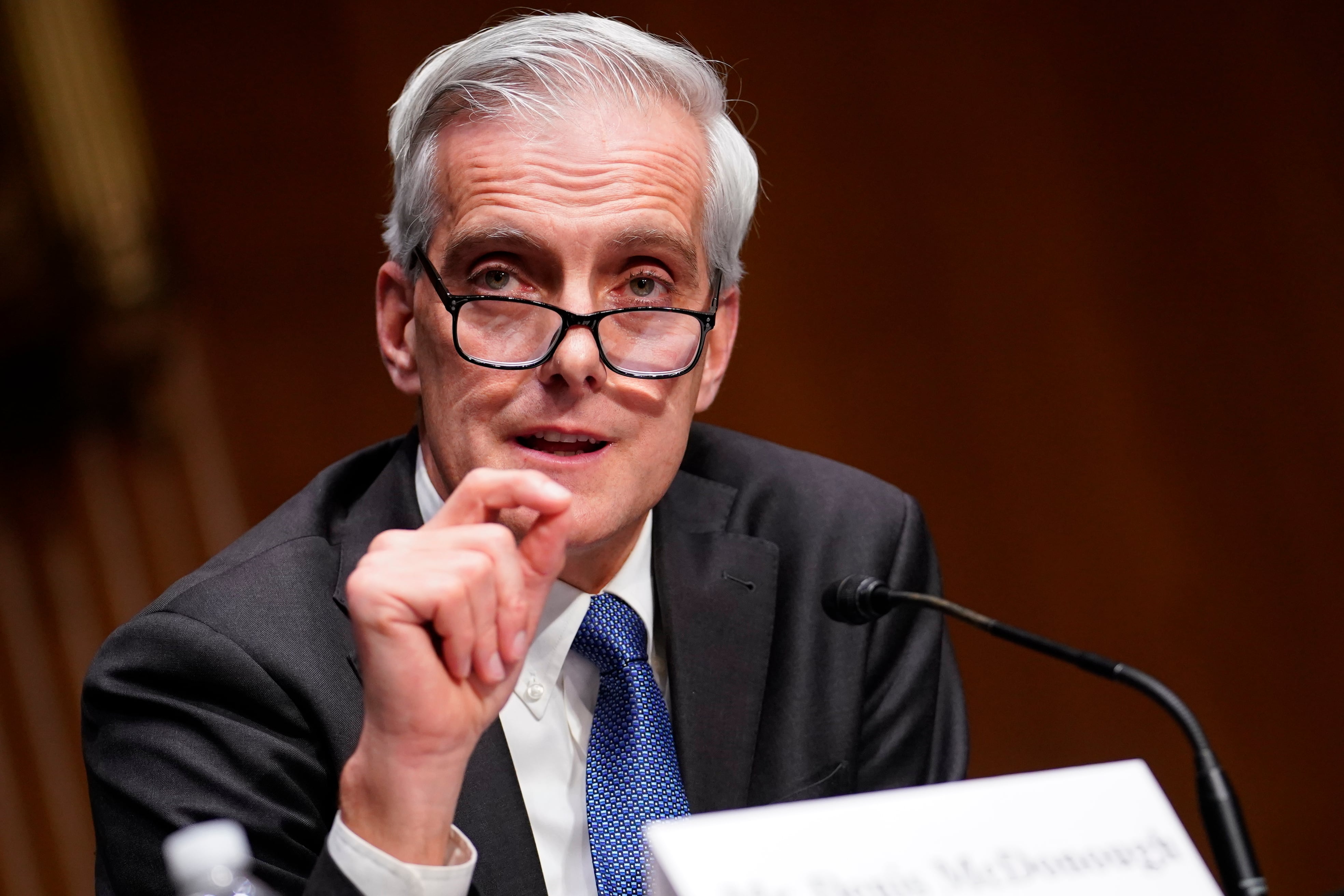Veterans Affairs’ switchover to a new electronic health records system may be demoralizing staff members and convincing some to quit, department leaders warned lawmakers on Wednesday.
“It was something I personally observed in my visit to Columbus,” said Dr. Shareef Elnahal, VA’s undersecretary for health, during testimony before the Senate Appropriations Committee. “Staff told me that this system was stressful to use and leadership told me that folks are leaving, in part because of the difficulty of the workflows.”
Despite that, VA officials said they are hopeful they can turn around the tumultuous rollout of the new Oracle Cerner records system, a $16 billion project that was once hailed as a way to provide seamless, improved medical care for troops and veterans.
RELATED

“We couldn’t be more frustrated,” said VA Deputy Secretary Donald Remy at the hearing. “That’s why we are holding [Oracle Cerner] and ourselves accountable. That’s why we are applying lessons learned from every deployment to continue to improve. That’s why we have pause on all future go-lives until 2023 to get this right.
“Make no mistake, we will get this right.”
VA has already committed about $7 billion to the project, which began in early 2018 under President Donald Trump. The transition was originally predicted to take 10 years to complete.
But repeated delays have called that schedule into question. In June, VA officials delayed all future deployments of the records system to new medical sites after acknowledging numerous reports of patient harm at initial sites using the software.
It followed several stops and starts with the system over the past 18 months, with VA employees reporting poor training and frequent outages with the system.
Elnahal was confirmed to his post in late July. In recent visits to medical sites using the new system, he said, he heard complaints from staff that they lack confidence the new software is recording their records updates, either because of flaws in the workflows or outages with the system.
He did not offer any specific numbers on staff turnover or frustration, but emphasized that “right now, I see folks struggling with the system deeply.”
Mike Sicilia, executive vice president for Oracle, said that officials are making improvements to the system and are working closely on a new deployment schedule to get the project back on track.
“We’ll be ready whenever VA wishes to resume,” he told senators, noting that he feels the 2028 end date for the project is still a realistic goal.
But VA leaders have already said they won’t add any new sites until early 2023, and only if they have confidence that medical and technical staff are ready for the change.
“We’re looking closely at our schedule and realizing that there are issues that still need to be resolved,” Remy said. “The schedule would have us go to the next installation in January or February. If we have to push that back, we will push that back.”
RELATED

Similar to comments made by House lawmakers over the summer, the Senate appropriators warned VA leaders that they need to show progress on efforts soon or risk having the entire program scrapped.
“I don’t want anything implemented before it’s ready for prime time. By the same token, we’ve got an investment in a program that needs to start delivering at some time,” said Sen. Jon Tester, D-Mont., chairman of the Senate Veterans’ Affairs Committee and a member of the chamber’s appropriations panel.
“It’s going to be five years in May, and we haven’t done a damn thing. It has been a train wreck.”
Leo covers Congress, Veterans Affairs and the White House for Military Times. He has covered Washington, D.C. since 2004, focusing on military personnel and veterans policies. His work has earned numerous honors, including a 2009 Polk award, a 2010 National Headliner Award, the IAVA Leadership in Journalism award and the VFW News Media award.




